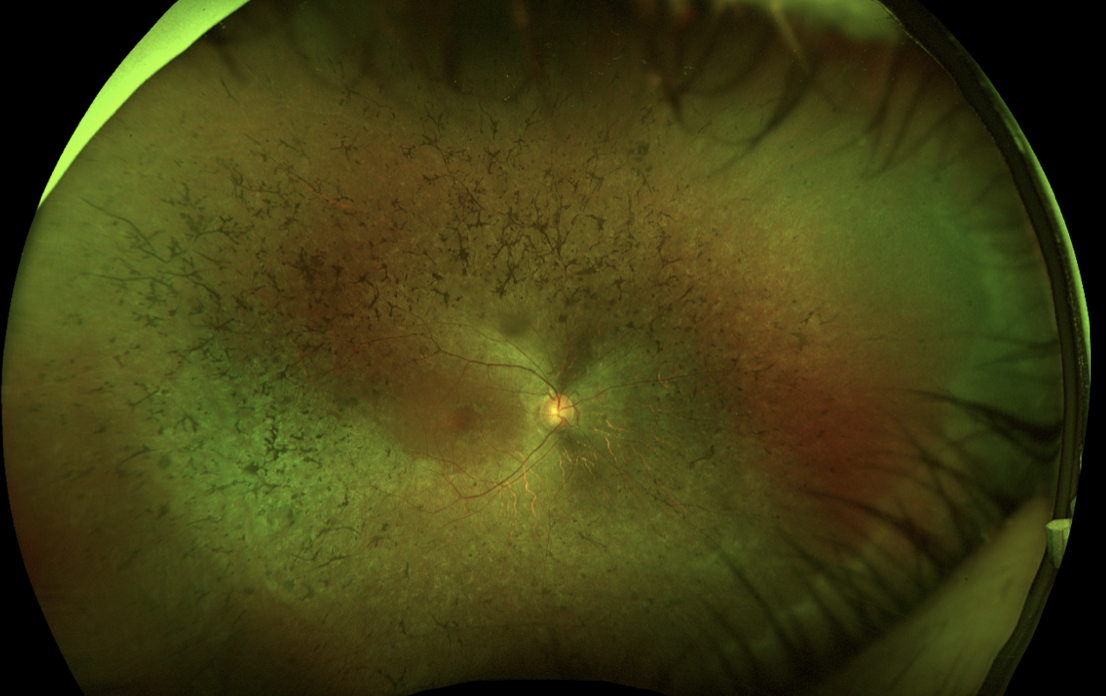What is Retinitis Pigmentosa?
Retinitis Pigmentosa, also known as RP, is a group of eye conditions that affect the retina. This condition can alter how the retina responds to light, making it difficult for people with RP to see. Essentially, RP causes changes to the cells in the retina known as photoreceptors, which do not work properly and can result in poor vision. The photoreceptors contain rods and cones cells, with rods being affected first in RP patients, causing difficulty seeing at night and loss of peripheral vision. RP causes a slow loss of vision over time, although most people do not become completely blind. RP usually affects both eyes and is often inherited from parents to their children.
Symptoms of Retinitis Pigmentosa
One of the most common early symptoms that retinitis pigmentosa patients experience is night blindness, which makes it difficult to adjust to darkness and see in low light conditions. Patients may also bump into objects in the dark. As the disease progresses, patients gradually lose their peripheral visual field, making it difficult to see objects to the side. In some cases, patients may also experience a loss of central vision in the later stages of the disease.
What Causes Retinitis Pigmentosa?
In most cases, Retinitis Pigmentosa is caused by changes in genes that control the cells in the retina. RP is usually due to genetic inheritance and can be linked to many genes in our body. It can also occur as part of other genetic conditions, such as Usher syndrome, which causes both vision and hearing loss and can lead to difficulty in balancing.
How is Retinitis Pigmentosa diagnosed?
A comprehensive dilated eye examination is required in order to diagnose Retinitis Pigmentosa. Clinical tests such as visual field, electroretinography (ERG), optical coherence tomography (OCT), and fundus autofluorescence imaging (AF) can also be used to diagnose RP. Genetic testing can also be done to determine the type of RP a patient has, which is important for family planning since RP is a genetic inherited disorder.
Treatment for Retinitis Pigmentosa
Unfortunately, there is currently no cure for Retinitis Pigmentosa. However, low vision aids and visual rehabilitation programs provided by low vision specialists can help RP patients improve their quality of life. Researchers are studying gene and cell therapies as potential future treatments for RP.
If you are experiencing any symptoms related to Retinitis Pigmentosa, we recommend visiting a retinal specialist at our centre. A retinal specialist will be able to determine if any diagnostic tests are necessary to rule out any abnormalities. Additionally, we offer genetic testing at our centre.
Residents within Klang Valley in areas such as Cheras, Puchong, Shah Alam, Petaling Jaya, and Kepong can visit our low vision specialist, Ms Vinodhini Naidu to have their eyes examined at Nexus Bangsar South KL branch. Residents in Seremban 2, Senawang, Sendayan and Port Dickson can visit Dr Teh Wee Min at our Seremban branch. Residents in Johor Bahru, Skudai, Kulai, Iskandar Puteri, Senai, Tebrau, Batu Pahat, Kluang, Segamat can visit Dr Ling Kiet Phang or Dr Chan Choon Teng at our Johor Bahru branch. Residents in Perai, Bukit Mertajam, Butterworth, Penang island, Alor Setar, Kulim and Sungai Petani can visit Dato’ Dr Haslina at our Penang branch.


